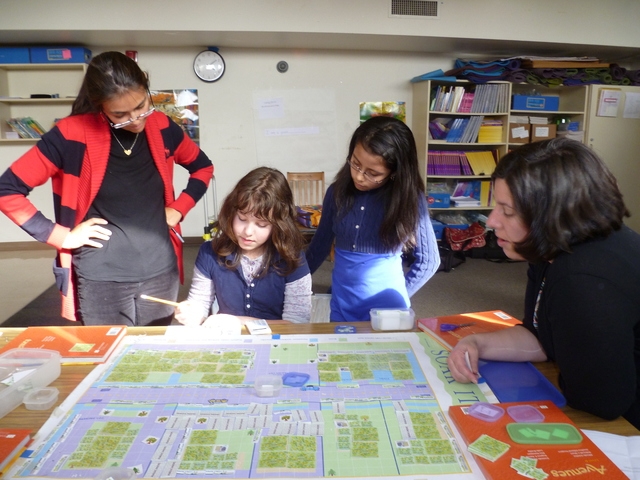The range of institutions that already offer courses over electronic networks is very wide. In the United States alone, there are already more than 100 such universities. Similar developments have been observed in Australia, New Zealand and the United Kingdom. Millions of pages of data from virtually every country are available with a single click on a personal computer. In Africa, the World Bank has launched a project on the creation of an African Virtual University (AVU). Among other things, you can study electronic engineering, nursing and computer science. The courses are open to thousands of eligible students who would otherwise have no chance of access to post-school education, especially in disadvantaged areas. The inability of African governments to finance the training of all eligible students is a problem that the AVU can address. The first courses were started at Kenyatta University campus in July 1997. In this context, the University of South Africa’s Internet project entitled Students-On-Line (SOL) virtual system is an undeniable success for Africans. The project now reaches several thousand distance students across South Africa. Today, virtual education programmes offered in parallel with traditional university degrees are recognized as an important means of improving access to education.

Flexible learning
Access to learning is increasingly taking precedence over educational provision per se. Various donors have drawn attention to the need to train more autonomous, independent, self-directed and responsible learners, especially in an interactive learning context. Educators could encourage learner empowerment if they adopted flexible learning methods that gave students a free choice of what they learned, how and when: start and end dates of studies, recognition of prior teaching, choice of assessment and subjects, choice of order in which they were studied. These factors play a very important role in adult education. The lecturer actually becomes a pedagogical facilitator, and online education is perfectly suited to this type of flexibility.
Better chances of making the right choice
Currently, distance education is often the last resort for students who do not have the opportunity to pursue conventional studies: this is the case for the primary education diploma awarded by the University of Botswana as part of a distance education programme, which gives more than 9,000 primary school teachers the opportunity to improve their qualifications. This is the only option available under the current circumstances. On the other hand, online education gives each student the means to satisfy his or her needs without losing value in the learning process.
Improved services, better quality of education
In traditional university teaching, courses are often prepared by isolated teachers who do not have the necessary pedagogical training. The actors concerned rarely evaluate this type of education. Whether or not they use more or less sophisticated tools, these courses are always a private relationship between the teacher and the students directly concerned. Virtual teaching, on the other hand, is often a team activity; the contribution of each actor is complemented by the skills of other team members, for example by specialists in pedagogy or media design. The virtual pedagogical approach considers education as teamwork and accepts quality criteria and contractual responsibility as natural elements that can substantially improve the quality of educational provision. Many experts believe that quality management processes and indices are easier to integrate into distance learning methods and even into online education.
Access to a greater volume of information
Cyberspace provides access to more comprehensive educational and research materials than any single organization can provide: course texts, research results, news and studies, online books and online access to library catalogues. We ourselves have benefited enormously from access to the lecture notes published by our colleagues on the Internet and have repeatedly encouraged our students to seek additional information on the Internet.

Broader opportunities for innovation
In online education, annotations, references and citations of sources tend to disappear in favour of hyperlinks to original sources. New forms of language, writing, reading, study and criticism are emerging from this digital media. Some donors have drawn attention to the fact that online education requires new forms of scholarship and skills, and that universities will have to invent new techniques to conceptualize information and establish conventions on knowledge. It should be noted that the more education is transmitted online, the more new pedagogical theories and practices will be needed and that these will eventually give rise to a new form of scholarship.
Online education: problems and challenges for universities
The growing need for online education is due to several factors that must be assessed one by one as higher education institutions face the challenge of the computerized age.
React / adapt to changes
The university, with its classrooms, campus and community of experts, is a model deeply rooted in the university concept itself, and has opposed all alternative conceptions. The traditional university and its teaching methods are fundamentally challenged. The university structure – its tradition and values – is now considered one of the main obstacles to the new mode of educational provision. Some commentators on the future of university education believe that there is an urgent need for lifelong learning and change opportunities today, and that degrees as currently designed and organized are becoming less and less appropriate. We are already feeling this pressure in computer science education, namely that more and more employers prefer candidates with specific software and hardware training to those with general university education, just as they prefer “industrial certification” to university degrees. Higher education and training institutions are under such pressure that they must make extraordinary efforts to readjust their programmes and educational provision.
Transforming the structure of knowledge
To ensure the transfer of the knowledge structure from stable traditional institutions based on the use of the printed tool to cyber-education based on interaction and technology, new modes of assessment must be used. Content no longer has the same importance now that information can be accumulated to this extent and made available so quickly in digital form. Information users in the cyber age must learn to differentiate the sources and value of digital information because on the screen all information looks the same. The authority that emanated from the academic journal, for example, and which differentiated it from popular magazines, must now be readjusted in equivalent electronic terms. The shift from content to processes calls into question the hierarchical organization of the university system.
Academic scholarship
Recently, a number of online journals have burst into the market. Print newspapers are increasingly giving way to electronic forms and the latest research information is available online on the web. Besides finding ways to assert their authority in the new media, scientists must also learn to highlight their electronic contributions and educational sites. The challenge is to know to what extent universities, still trapped in their knowledge and in the academic standards of the past, will be ready to adopt new modes of academic practice adapted to the needs of the cyber-generation.
Intellectual Property
The question is who owns the books produced by academics. Some organizations already claim to be “owners” of everything that is produced by their staff. But when “pedagogically inappropriate” documents are published, who is responsible for them? Worse still, who is being prosecuted for copyright infringement?
Avoid letting yourself be marginalized
One of the most striking features of the new educational concept is the way it breaks down boundaries, turning universities into commercial companies and vice versa, with companies sometimes even paying academics by turning them into intellectual workers. The distinctions between subjects disappear, the distinctions between teaching and research fade as information is produced online. Much of the university’s intellectual activity now takes place outside its doors. Traditional universities will have to compete with virtual universities.

